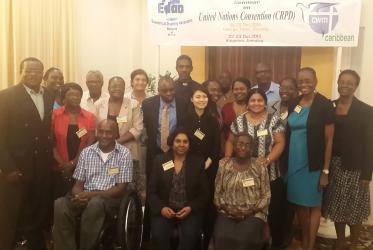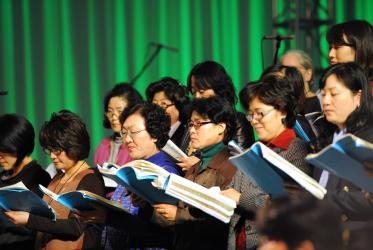Displaying 121 - 140 of 154
13 November 2015
“No decision about us without us”
09 November 2015
Local and global work saves lives
22 October 2015
WCC Executive Committee speaks out on migrant crises
12 June 2015
WCC Annual Review 2014
28 April 2015
Killer Robots? Moral questions pervade UN conference
23 April 2015
“We have to build new bridges”
28 August 2014
WCC commission leadership selected
13 August 2014
Pilgrimage theme to engage local churches
09 July 2014
The value of peace
07 July 2014
Ensuring “just peace” in occupied Palestinian territory
17 April 2014
Assembly renews churches’ commitment towards justice and peace
08 November 2013
Ecumenical Review gauges the movement’s direction
18 July 2013












